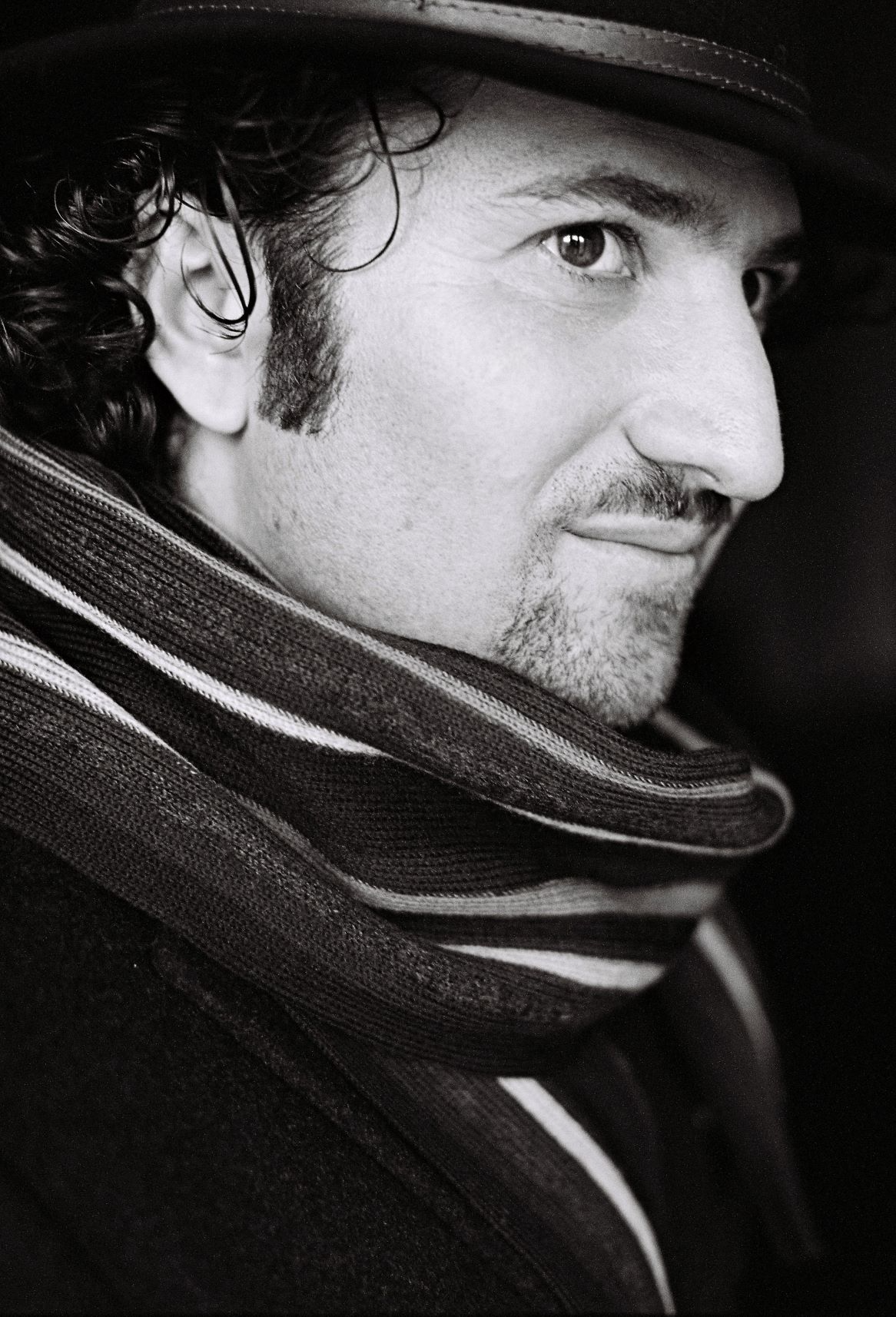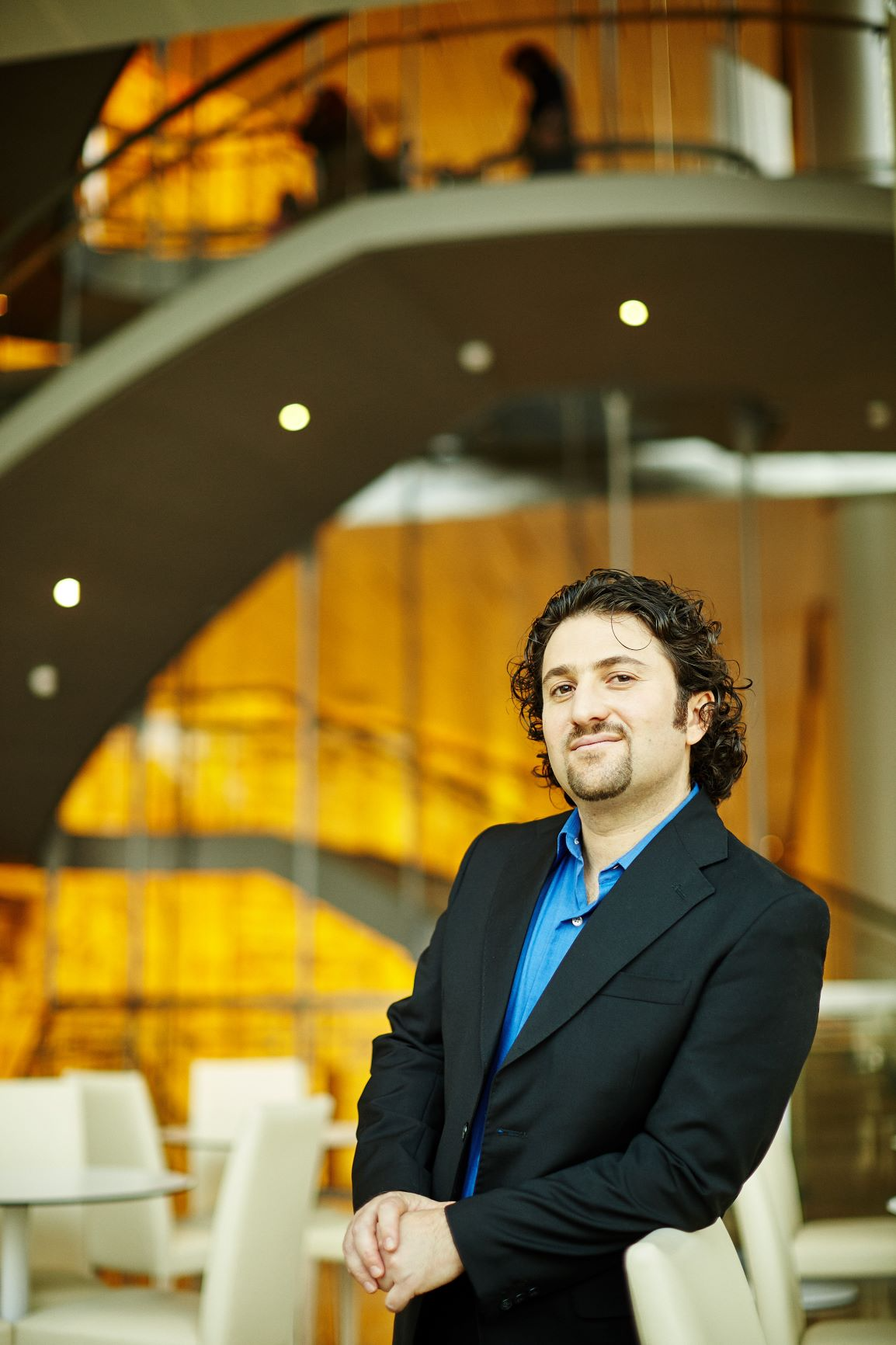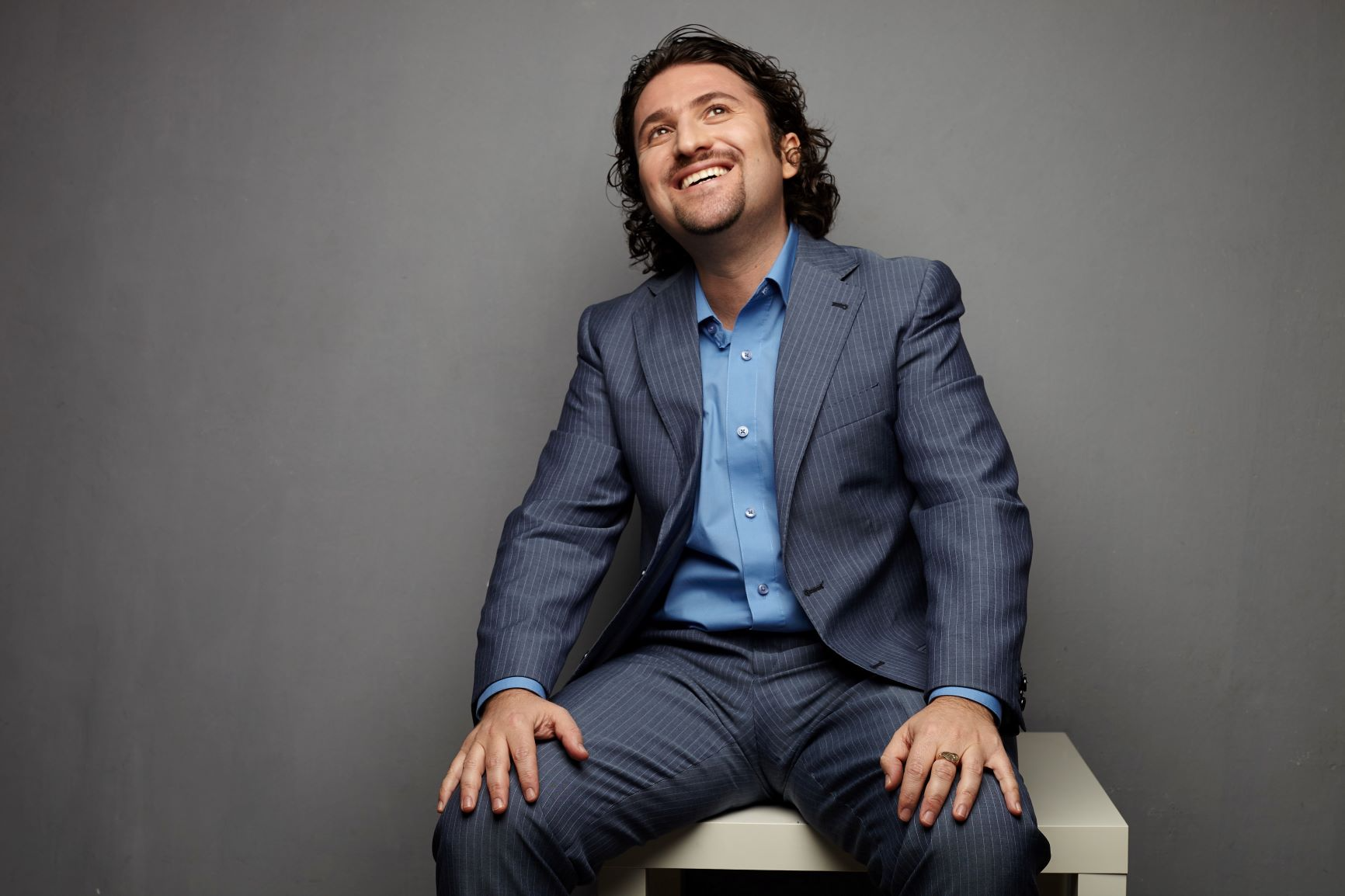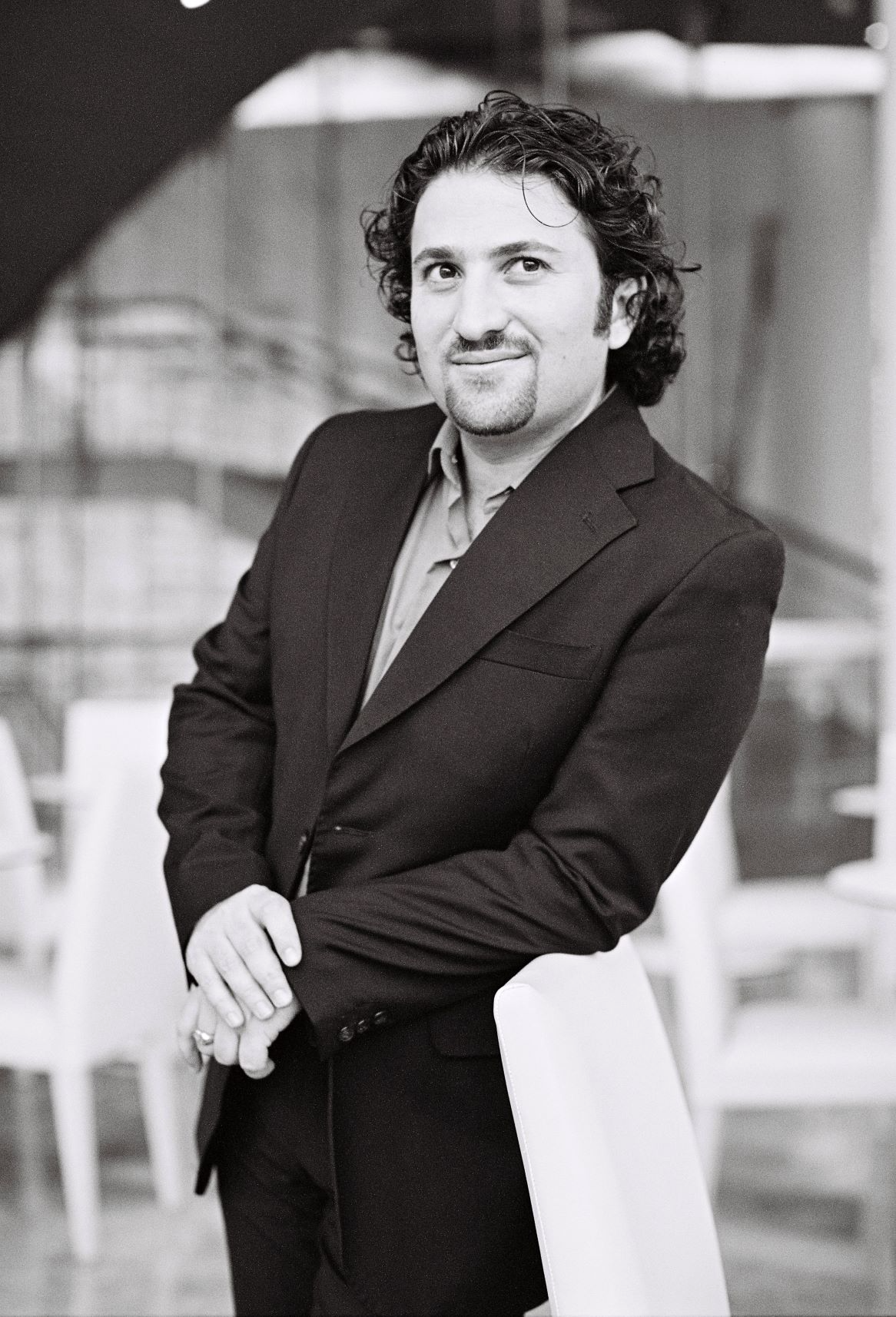
Conductor
Mikhail Agrest
"Mikhail Agrest’s direction of the orchestra was pure poetry and emotion." - Demokraatti
Represented by

"Mikhail Agrest’s direction of the orchestra was pure poetry and emotion." - Demokraatti
Represented by
Angelin Preljocaj, Stage Director
Angelin Preljocaj, Stage Director
Angelin Preljocaj, Stage Director
Helgi Tomasson, Stage Director
II barbiere di Siviglia at Staatsoper Hannover, Schwanda the Bagpiper at Teatro Massimo di Palermo, La bohème, Eugene Onegin at the Finnish National Opera, The Fiery Angel at the Scottish Opera, Tosca at Badisches Staatstheater Karlsruhe, La traviata at Semperoper Dresden, Don Giovanni at Opera Australia, Jenůfa at the English National Opera, Rake’s Progress at Ópera de Oviedo, Tosca at the Royal Swedish Opera and La traviata at the Glimmerglass Festival, The Legend of Invisible City of Kitezh at The Metropolitan Opera, The Fiery Angel at the Israeli Opera, Moscow Cheryomushki (in concert) and Cleopatra/Oedipus Rex at Oper Graz, Peter Pan at Volksoper, The Nutcracker at New York City Ballet and at San Francisco Ballet, Gisele at Teatro alla Scala di Milano, Le Parc at Bavarian State Ballet.
Symphonic concerts with the Orchestra del Teatro Petruzzelli di Bari, concert with Olga Peretyatko and Singapore Symphony Orchestra, concert with Angela Gheorghiu and Limak Philharmonic Orchestra, Stuttgarter Philharmoniker, Charleston Symphony Orchestra, Vancouver Symphony Orchestra, Orquesta Clasica Santa Cecilia Orchestra and returned to the Seattle Symphony, Stavanger Symphony Orchestra, China National Symphony Orchestra, Polish Radio Orchestra in Warsaw, National Symphony Orchestra of Taiwan.
Švanda dudák, Swan Lake, Heatscape at Semperoper Dresden, Faust at Zurich Opera, La Traviata, Tosca at the Swedish National Opera, Symphonic programs with the London Philharmonic Orchestra, BBC Symphony Orchestra, Orchestre Philharmonique de Radio France, Staatskapelle Dresden, Bruckner Orchester Linz, Danish National Symphony Orchestra, St. Petersburg Philharmonic Orchestra, Aalborg Symphony Orchestra, New West Symphony, Royal Liverpool Philharmonic Orchestra, Houston Symphony, Richmond Symphony Orchestra, Bournemouth Symphony Orchestra, Malmö Symphony Orchestra, Helsinki Philharmonic Orchestra, Hungarian National Philharmonic Orchestra, Bremer Philharmoniker, Seoul Philharmonic Orchestra, Yomiuri Nippon Symphony Orchestra, Netherlands Philharmonic Orchestra, Antwerp Symphony Orchestra, Royal Stockholm Philharmonic Orchestra, Sinfonia Varsovia and the Taiwan Philharmonic, Dresdner Philharmonie, Gewandhausorchester Leipzig, Südwestdeutsche Philharmonie, Nordwestdeutsche Philharmonie, Komische Oper Berlin, Sinfonieorchester Basel, Sinfonieorchester St. Gallen, Orchestra de la Suisse Romande, Filarmonica Arturo Toscanini Parma, Teatro Regio Torino, Opera de Lyon, Orquesta Sinfónica de Euskadi, Spanisches Nationalorchester, Orquestra Metropolitana de Lisboa, Philharmonisches Orchester Enescu, Szczeciner Philharmonie Orchester, Athener Staatsorchester, Königliche Philharmonie Flandern, Het Brabants Orkest (heutige Philharmonie Zuidnederland), Philharmonie Kopenhagen, Kungliga Operan Stockholm, Göteborgsoperan, Gävle Symphonieorchester, Finnische Nationaloper, BBC Schottisch Symphony Orchestra, City of Birmingham Symphony Orchestra, Northern Sinfonia, Schottisch Opera, RTE Symphony Orchestra Dublin, Indianapolis Symphony, Hunstville Symphony, Glimmerglass Opera, Theatro Municipal de São Paolo, Orquesta Filarmónica de Montevideo, Hong Kong Philharmoniker, Koreanische Symphonieorchester, Orchestra Ensemble Kanazawa, Central Aichi Symphonieorchester Japan.







#FCJINVERNO Festival Orchestra with Ronaldo Rolim (piano)
#FCJINVERNO Festival Orchestra with Ronaldo Rolim (piano)
Mahler
Mahler
Tchaikovsky - Eugene Onegin
Tchaikovsky - Eugene Onegin
Tchaikovsky - Eugene Onegin
Tchaikovsky - Eugene Onegin
Verdi - Traviata
Verdi - Traviata
Dirigent Mikhail Agrest, der nach einem soliden, wiewohl einfühlsamen „Lied von der Erde“ dem „fahrenden Gesellen“ mehr dramatische Intensität gönnte als beispielsweise zuvor dem „Trunkenen im Frühling“, loteteabschließend in John Crankos „Spuren“ das Adagio aus Mahlers unvollendet hinterlassener 10. Symphonie exzessiv und ausdrucksstark aus; das Stuttgarter Staatsorchester folgte ihm klangedel. Im Übrigen möge man erst einmal einen zweiten Dirigenten finden, der an einem einzigen Abend drei solche komplexe Mahler-Werke zur Aufführung bringt!
Das Staatsorchester Stuttgart unter Mikhail Agrest unterstreicht den Ton sehnender Erregung sehr überzeugend, den die Tänzerinnen und Tänzer ganz unmittelbar umsetzen... Diese Zeitreise wird vom Adagio aus Gustav Mahlers zehnter Sinfonie illustriert (die von Ernst Krenek und Deryck Cooke vervollständigt wurde), wobei das Staatsorchester Stuttgart unter Mikhail Agrest das von John Cranko beschworene schöne und zerquält-dissonante Thema präzis herausarbeitet. Das Stuttgarter Ballett verkörpert diese Doppelvariation mit unbändiger Energie, wobei sich die beiden Themen aufgrund der tänzerischen Umsetzung sehr deutlich fortwährend verändern. Der weitgespannte Melodiebogen der Bratschen vergrößert hier noch die Breite der Ausdruckscharaktere bis hin zur Klangeruption des höchst dissonanten Neunton-Akkords als Höhepunkt dieses Satzes.
Einen gewichtigen Part hatte das Staatsorchester Stuttgart zu bestreiten. Unter Mikhail Agrests stringenter Leitung wurde der unermessliche Kosmos seiner symphonischen Kunst vielfach farbenreich und um Durchhörbarkeit bemüht freigelegt, die Spannung seiner spätromantisch exzessiven wie auch hauchzart sensiblen Instrumentierung aufgeschlüsselt. Die begeisterte Aufnahme durch das Publikum erstreckte sich zuletzt auch auf die Leistungen im Orchestergraben.
Aus dem Vollen schöpfen dürfen die spielfreudigen Grazer Philharmoniker unter Mikhail Agrest.
Umso mehr, als Dirigent Mikhail Agrest mit den Grazer Philharmonikern und dem Opernchor die dramatischen, romantischen, burlesken Elemente der Partitur mit Schwung und Glut auskostet.
Der 52-jährige britische Choreograf widmet sein neues sinfonisches Ballett der Erinnerung an John Cranko, seine Symphony No. 2 „Under the Trees‘ Voices“ mit der Musik des früh verstorbenen italienischen Komponisten Ezio Bosso ist ein ästhetisches Gesamtkunstwerk aus fluktuierendem Tanz, beweglicher Bühneninstallation und metamorpher Minimal Music, die von Mikhail Agrest und dem Staatsorchester bravourös dargeboten wird.
Minimalistische Musik, mal mit klassischen Zitaten, mal seriell moduliert: Das Staatsorchester macht unter Mikhail Agrest den neuen Ballettabend zum fein nuancierten Klangerlebnis.
Elektronische Trommeln, knirschende Geräusche, lautes Atmen, Bläser und Streicher, die mal berücken, mal an den Nerven zehren, bilden die akustische Kulisse. Bis dahin war sie sanft, beruhigend. Die Musik von Henry Vega ist eine Auftragskomposition, von Mikhail Agrest am Dirigentenpult mit großer Genauigkeit umgesetzt.
Heureusement, l'Orchestre national de Stuttgart dirigé par Mikhail Agrest fait mieux que livrer une bande-son dans la fosse de l'Opéra : peut-être le contexte nous incite-t-il à l'indulgence, mais il est trop rare au ballet que la musique soit à la hauteur de la danse pour ne pas en remercier les musiciens.
Das Staatsorchester Stuttgart musiziert unter der konzentrierten Leitung von Mikhail Agrest ausgesprochen feinnervig und mit viel Gespür für die subtilen thematischen Verbindungen. Klangliche und formale Kühnheiten der Partitur werden immer wieder überzeugend herausgestellt und sind so für die Tänzerinnen und Tänzer eine große Hilfe.
Mikhail Agrest’s direction of the orchestra was pure poetry and emotion. Affection, hope, intellect, and beauty – every element was cherished like a petal of a flower. He led the orchestra through the musical narrative, like a good shepherd.
It was a performance, so rare in our days, that showed integrity and unity of the musical and theatrical incarnations. In many respects this is due to the intelligent manner of the conductor,
music in the blood. A former student of Mariss Jansons, he led the orchestra, bringing out inner details and nuances , and musicians obediently trusted each of his maningful gestures
Three cheers too for Mikhail Agrest and the Staatsorchester who have audibly worked hard to bring out the extraordinary richness and varied sonorities of John Lanchbery’s masterful arrangement of Liszt. In Stuttgart, this score was a new experience for both conductor and orchestra who have approached it with engagement and respect, making it sound fresh and singularly right. Agrest elicited magnificent playing, with warm string sound and emphatic brass. Time and time again, the detailing in the score was brought out in a way not heard in London.
Agrest and the orchestra gave a muscular account of this powerful score,
Mikhail Agrest keeps driving the music to its inexorable conclusion